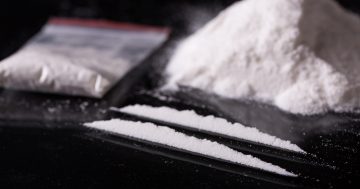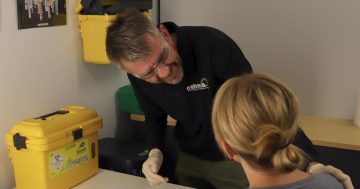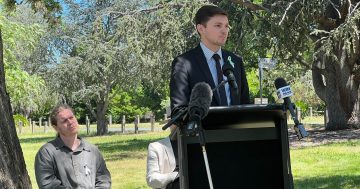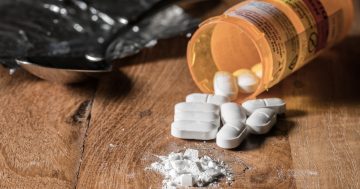
A former police chief and the head of Portugal’s Institute on Drugs and Drug Addiction told the BBC in 2007: “There were fears Portugal might become a drug paradise but that simply didn’t happen.” Photo: File.
New laws decriminalising the possession of small amounts of illicit drugs come into effect in the ACT on 28 October.
As Canberra Alliance for Harm Minimisation and Advocacy (CAHMA) executive director Chris Gough told Region last month, this is a fairly “well-trodden” path: the ACT first decriminalised small amounts of cannabis use in 1992.
Looking beyond Canberra, there are plenty of examples around the world of countries that have chosen to reduce penalties for possession of drugs and make the issue more one of harm reduction than criminal punishment.
Can we learn anything from them?
The example that gets thrown around a lot is Portugal.
In 2001, new laws came into effect in Portugal that made possession of drugs an administrative offence rather than criminal as long as the individual was found with less than the average amount required for 10 days of personal use.
There was, unsurprisingly, strong opposition to the reforms, which came after drug use skyrocketed in the 1990s.
Paulo Portas, leader of the conservative Popular Party, said: “There will be planeloads of students heading for the Algarve to smoke marijuana and take a lot worse, knowing we won’t put them in jail. We promise sun, beaches and any drug you like.”
It seems this wasn’t the case, though. About 95 per cent of drug offences in the years that followed were committed by locals.
Indeed, Fernando Negrão, a former police chief and the head of Portugal’s Institute on Drugs and Drug Addiction, told the BBC in 2007: “There were fears Portugal might become a drug paradise [for tourists], but that simply didn’t happen.”
So, if you think Canberra is about to become the new Lisbon (which was feared to become the new Amsterdam), probably don’t hold your breath.
Opponents of decriminalisation are also quick to warn that it will inevitably result in an increase in drug use, but drug use in Portugal has not veered far from wider European trends since 2001.
In fact, according to surveys conducted in 2023 by the European Monitoring Centre for Drugs and Drug Addiction, drug use among young people and adults seems to be lower in Portugal than in many other EU nations.
The results of a European-wide drug survey conducted before and after the decriminalisation found drug use increased in Portugal following the decriminalisation. However, this isn’t necessarily connected to the country’s drug policy, given similar trends were seen elsewhere. Prevalence of drug use over the past 12 months among 15 to 65-year-olds increased from 3.4 per 1000 people in 2001 to 3.7 per 1000 in 2007.
“Portuguese trends largely mimicked the trends observed in neighbouring Spain and Italy … The congruity with the other data from neighbouring nations provides little evidence that any apparent increases were directly attributable to the decriminalisation,” it said.
Looking specifically at drug use among younger people, the study found lifetime use of most illicit drugs increased in the lead-up to and immediately after 2001 but then declined. This also broadly follows trends across Europe, but the “2003–07 decline in reported use of any illicit substance appears more pronounced in Portugal”.
One of the arguments for decriminalisation often touted is that it will encourage people to seek help as drug users will no longer fear criminal sanctions. Anecdotal evidence from the International Network of People Who Use Drugs (INPUD) suggests this wasn’t always the case.
INPUD found drug users in Portugal were still being stopped, searched and harassed by police, despite the partial decriminalisation, and that police felt they lacked the training to deal with the new laws.
“I think the new law managed to open space to some policemen, and some judges, and some security forces can be more open and comprehensive,” one participant said. “But it depends, you know? You can have that night a policeman that is very strict and rigid.”
While advocates say decriminalisation will reduce stigma and encourage people to seek help, drug users who spoke to INPUD said they still felt discriminated against.
“Stigma is not a thing that disappears magically, so for years and years, we have been looked [at] like criminals, or with moral defect, so that won’t disappear by magic,” one participant said.
“And at the same time, they’re now introducing a new stigma – the mental health disorder, which can be as bad as the criminal stigma … The stigma is still there, the prejudice is still there, the labelling is still there.”
Looking at the data from Portugal, comparing a European country in 2001 with Canberra in 2023 is like comparing apples and oranges. So what can we learn? Possibly just that the change may not have as much of an impact – whether positive or negative – on drug use and stigmatisation as we thought.




















